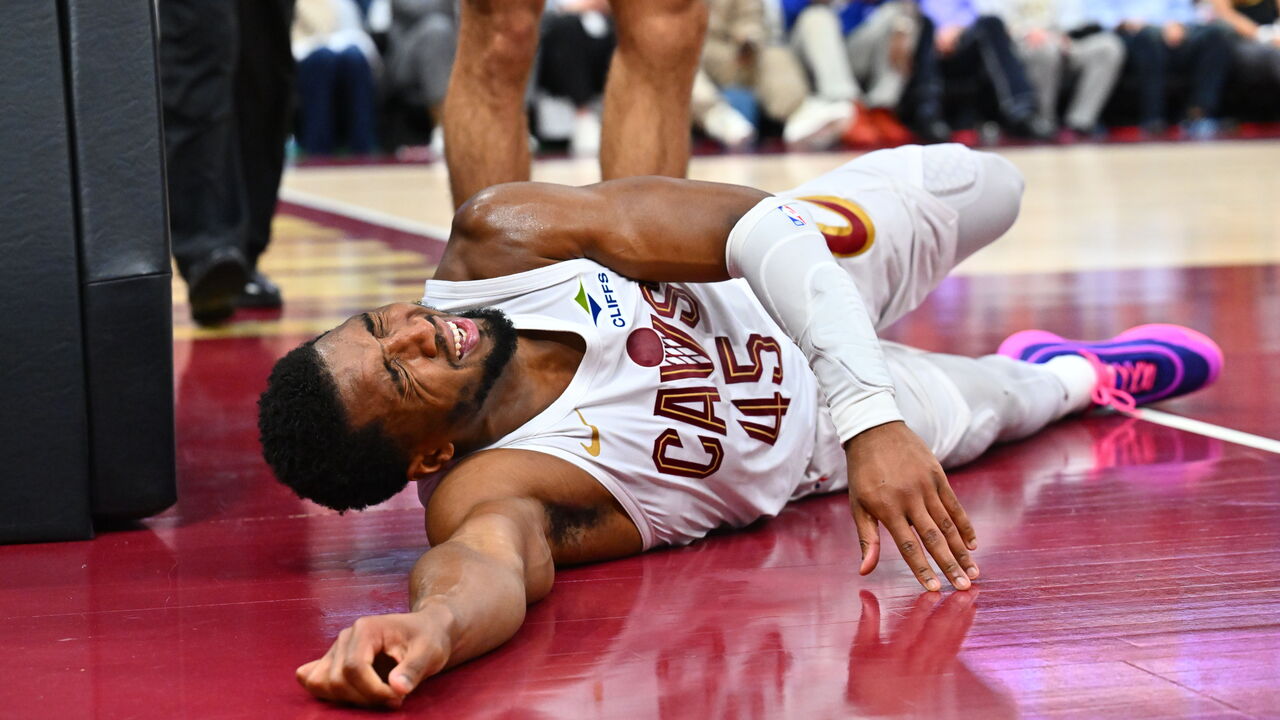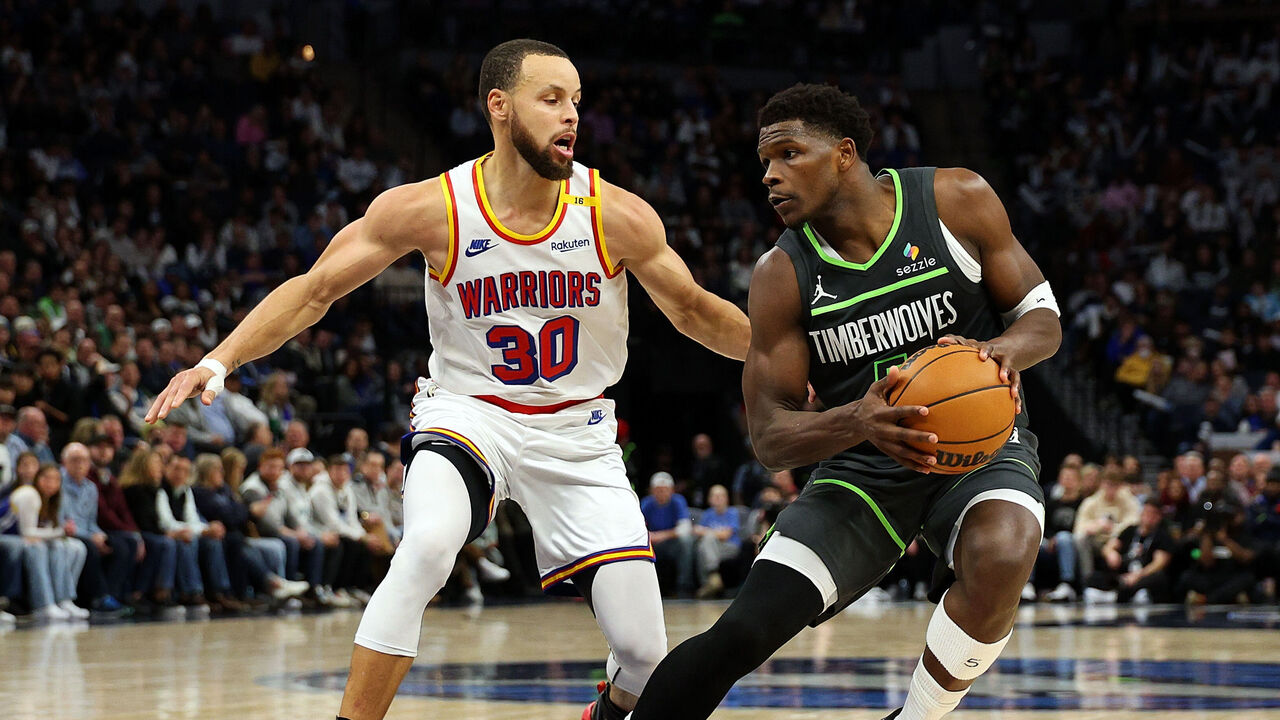5 more takeaways from a bonkers start to the 2nd round
What on earth is happening?
We're just four days into the conference semifinals, and already this feels like one of the wildest second rounds we've ever seen. If your head is spinning from everything that's already transpired, here's a rundown of five more things you need to know. (Check out Wednesday's initial five takeaways. I'll have more on Knicks-Celtics tomorrow.)
Cleveland's season deserves a better ending
The one thing that put a damper on the Pacers' dramatic Game 2 win is that it came against an opponent missing three of its five most important players. Injuries are helping to pave Indiana's path to the East finals for a second straight year, which is a shame because the Pacers are good enough to challenge or maybe even topple the Cavs at full strength.
More than that, it's devastating that a Cleveland team coming off a magical 64-win regular season is facing the prospect of a premature playoff exit because it got banged up at the wrong time. The Cavs were one of the league's healthiest teams this season by total man games lost, especially when factoring in the value of the players who missed time. Their core four combined to miss just 29 contests, a year after combining to miss 89.
But now All-Stars Darius Garland and Evan Mobley are on the shelf, along with super sub (and frequent closer) De'Andre Hunter. It's unclear whether any of them will be available or have much to give as Cleveland tries to climb out of an 0-2 hole on the road. After how dominant they looked all year, and the way they pancaked Miami in the first round, the Cavs had real championship aspirations. At this point, though, it might take some Pacers-level magic to keep their season alive.
Donovan Mitchell is giving everything he has

If anyone's capable of conjuring that magic, it's the guy who carried the Cavs to the brink of victory with 48 points in Game 2. All season, Mitchell has sacrificed individual stats and on-ball touches to facilitate a healthier team ecosystem. But without Garland, Mobley, or Hunter by his side, and with Ty Jerome struggling under the increased burden (1-for-14 shooting), Mitchell had no choice but to play the brand of hero ball he was known for in the past. And boy, did he prove worthy of the cape.
He was looking to get downhill and absorb contact from the opening tip. Over and over, he tore through the Pacers' first line of defense (shedding excellent point-of-attack defenders in Andrew Nembhard and Aaron Nesmith) and either finished over, got fouled by, or passed around their second wave of defenders. He drove 26 times and scored 31 points off those drives. He shot 9-for-16 at the rim, 5-for-6 from floater range, and 17-for-21 from the free-throw line. If you factor in his nine assists, six of which set up 3-balls, he directly created 72 of the 98 points Cleveland scored with him on the floor.
Mitchell's 46.2% usage rate in the game is tied for the highest from a player with at least 20 minutes played in any game in the last four postseasons. The only guy to equal that mark was … Mitchell, when he scored 50 of Cleveland's 96 points in Game 6 of the first round against Orlando last year. His 28 points in the paint Tuesday night were also tied for the second most by a guard in a playoff game in the play-by-play era. (Luka Doncic had the same total against the Clippers in the bubble. First on the list? You guessed it: Mitchell himself, with 36 in that Game 6 against the Magic.)
It was a superhuman performance, and Mitchell did it on a balky calf. The Cavs won his 36 minutes by 13 points and lost their 12 minutes without him by 14. Some might wonder why Atkinson didn't just play him for longer; most coaches extend their stars' minutes to 40-plus in games of this magnitude. But given his usage load and the high-impact way he was scoring, those were 36 of the most arduous minutes you'll see, and Mitchell looked burnt out by game's end.
Does he have another game like that in him? The Cavs have relied on their depth all year, but that may now be their only hope.
Tyrese Haliburton is underrated
Mitchell should've been the hero of Game 2, but instead it wound up being the guy who got showered with "OVERRATED!" chants before burying the game-winner. Those chants were fueled by an anonymous poll in The Athletic in which Haliburton was the leading vote-getter among his peers for the title of the league's most overrated player.
It's hard to settle on who's overrated, underrated, or properly rated without relying on the most anecdotal evidence of who rates whom how highly. Everyone should know by now how good Haliburton is, having witnessed the latest cold-blooded dagger from the league's clutchest shot-maker. That's on top of everything else that makes him a special offensive talent: the sublime hit-ahead passing, the simultaneously frenetic and controlled pace he plays at, his remarkably assured decision-making and abnormally low turnover rate. But it's the way Haliburton's been defending this postseason that I think deserves more attention.
He's long had a justified reputation as a minus defender, but in the past two series, he's been a legitimate plus. He's been a menace on the weak side, jumping gaps and deflecting passes left and right. He still gets hunted relentlessly in ball-screen action because he's the most sensible target in a starting lineup featuring Nemhard, Nesmith, Pascal Siakam, and Myles Turner. But he's holding his own in those scenarios - whether hedging or switching onto the ball - and he's generally doing a much better job of keeping his man in front of him. He's averaging more than a block per game. Multiple times down the stretch of Games 1 and 2, a Cavs guard tried to attack him to no avail.
To quote the man himself: "Overrate that!"
Minnesota might want to remember how to shoot

When the Timberwolves went 7-for-47 from 3-point range in their Game 5 closeout against the Lakers last round, they set a new record for most missed threes in a postseason game. (That record has since been eclipsed by the Celtics.) They managed to win regardless, but they couldn't survive an 0-for-16 start en route to a 5-for-29 finish from downtown in Game 1 of the second round, falling to a Warriors team that lost Steph Curry to a hamstring strain early in the second quarter. It's the worst two-game 3-point shooting stretch for any team in playoff history.
There's no great explanation for it. The Wolves ranked fourth in the league in 3-point percentage (37.7%) during the regular season, and were at 38.1% in the playoffs before their last two games. In those games, they shot 23.7% on wide-open threes, per NBA Advanced Stats.
As I wrote last round, when a team plays center-less - as the Lakers did and the Warriors often do - that usually means they collapse aggressively to the middle of the floor and try to protect the rim by committee. The Wolves ranked 15th of 16 teams in at-rim field-goal percentage (59.8%) in the first round. They shot 17-for-32 (53.1%) at the rim in Game 1 against Golden State. They need to keep driving to put pressure on the Warriors' tiny frontcourt, and they can certainly finish more effectively, but they really need to hit their threes to punish that style of defense. Especially because Draymond Green is a much better rim protector than anyone on L.A., and he looks extremely locked in right now.
That said ...
Steph's injury could be curtains for the Warriors
Curry's injury cast a major pall over Golden State's spirited Game 1 win, and he's already been ruled out for Games 2, 3, and 4. It's impossible to know if he can recover in time to return to this series because this is somehow the first significant hamstring injury of his 16-year career, according to Jeff Stotts of In Street Clothes.
The Warriors showed that they can win without Curry by relying on their hyperactive defense and getting just enough creation and shot-making from Green, Jimmy Butler, and Buddy Hield. But the Wolves will probably start making threes at some point, and Green probably won't make four of them again. Butler is still great, but he can't impact games like the Playoff Jimmy of old.
The Warriors performed 13.1 points per 100 possessions worse without Curry on the floor during the regular season, and 20.4 points per 100 worse with him on the bench in the first round of the playoffs. They played to an 83.5 half-court offensive rating in Game 1 against Minnesota. Absent his unparalleled gravity, their lineups with two or three non-shooters just don't really work. The hope is they can keep the Wolves at bay long enough for Curry to return and save them, but it's hard to see how they'll score enough to do that.
Joe Wolfond covers the NBA for theScore.